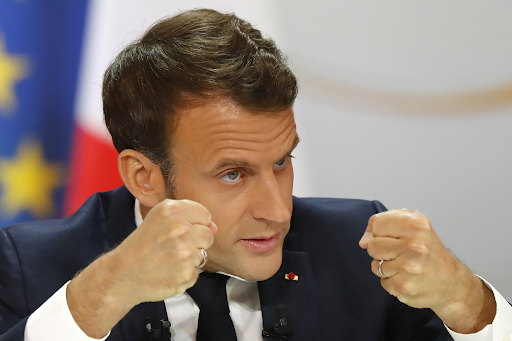France Recalls Ambassadors to the United States and Australia over Submarine Deal

Image courtesy of the Associated Press
By Garrett Farrell
Two weeks ago, Australia announced a new deal with the United States and the United Kingdom wherein the island nation would receive a new fleet of nuclear-powered American and British submarines. The deal was a win-win-win, with all three nations seemingly coming out ahead; that is, except for an unmentioned fourth nation who had a previously existing deal with Australia to supply diesel-powered submarines. That nation is France, whose politicians felt jilted by the announcement and, as a consequence, recalled its ambassadors from Washington and Canberra.
In order to smooth over tensions with Paris, each of the nations involved in the deal, interestingly abbreviated AUKUS, needed to give certain concessions to the French Government. For the United States, the concession took the form of a guaranteed meeting between President Biden and French president Emmanuel Macron, set for next month. While the faux pas has mainly blown over, and tensions have lowered, the question remains: what caused the need for Australia to abandon France?
Well, the submarines that Australia was to receive from France were meant to be the centerpiece of Australia’s navy in the Indo-Pacific region, and the initial deal was made in 2016 for diesel submarines that would end their term of service in 2036. The sole wrench in this plan was the same wrench that has been in any plan in Indo-Pacific policy since the 90s: China.
Since 2015, the Chinese navy has more than doubled, making it the single largest navy on the seven seas. The diesel-powered submarines that Australia would have gotten from France simply wouldn’t be able to compete with the Chinese navy in the region if tensions between the nations were to escalate. The nuclear submarines that Australia will receive from the United States and the United Kingdom are quicker and stronger than diesel subs.
“Ultimately, this was a decision about whether the submarines that were being built, at great cost to the Australian taxpayer, were going to be able to do a job that we needed it to do when they went into service,” said Australian Prime Minister Scott Morrison. “Our strategic judgment, based on the best possible intelligence and defense advice, was that it would not.”
While Australia does have interests to protect in the Indo-Pacific region and tensions with China have recently been on the rise, the purchase of these submarines has not done anything to lessen the tensions between the two countries.
“The nuclear submarine cooperation among the US, the UK, and Australia severely undermines regional peace and stability, intensifies arms race and undercuts international non-proliferation efforts,” said Zhao Lijian, the deputy director of the Chinese Ministry of Foreign Affairs information department. “It’s highly irresponsible and shows double standards on using nuclear export for geopolitical games.”
Despite the fact that China is the reason for the submarine purchase, Lijian does raise a valid point: how can world [read: Western] governments expect China to play by their rules if they themselves do not play by them?






